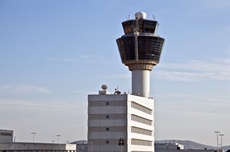Greece privatises 14 airports in €1.23-bn sell-off to German company
19 Aug 2015
The Greek government, in a controversial decision, has transferred 14 regional airports in the country to Germany's Fraport AG, in a deal worth €1.23 billion, pushing the Alexis Tsipras-led government to the brink.
 The deal comes ahead of a no-confidence vote sought by his own ruling Syriza party, after he broke a vow not to privatise infrastructure in order to secure the €86 billion bailout loan to prevent Greece crashing out the euro zone.
The deal comes ahead of a no-confidence vote sought by his own ruling Syriza party, after he broke a vow not to privatise infrastructure in order to secure the €86 billion bailout loan to prevent Greece crashing out the euro zone.
The controversial decision will see these airports, which include several on popular tourist island destinations, removed from the control of the Greek state.
The hardest blow to Greek pride is the fact that the company buying the airports is Germany-based Fraport AG, which currently runs Frankfurt Airport, among several others around the world.
German creditors have been unduly harsh in negotiating tough new terms for Athens to secure a massive €86-billion bailout loan to prevent the country from defaulting on its debts and risk crashing out the euro zone.
But, Tsipras had no alternative as the privatisation pledge is part of a deal on a third international bailout for Greece, worth €86 billion.
The airport sell-off, which was announced in the government gazette overnight, is the first privatisation decision taken by Tsipras, who was elected in January on promises to repeal the conditions of Greece's previous two bailouts.
The government had initially vowed to cancel the country's privatisation programme, but Tsipras has been forced to renege on his pre-election promises in order to win a deal on a third international bailout for Greece, worth €86 billion.
Without the rescue package, Greece would have defaulted on its debts and risked being forced out of Europe's common currency.
Separately, the government slightly relaxed its restrictions on banking transactions, allowing small amounts to be sent abroad for the first time in about two months.
The finance ministry's amendments, also published in the government gazette, include allowing Greeks to send up to €500 euros abroad per person per month, and allowing up to €8,000 per quarter to be sent to students studying abroad to cover accommodation costs.
Greeks can now also open new bank accounts that will have no withdrawal rights, in order to repay loans, social security contributions or tax debts.
Prime Minister Tsipras is facing a no-confidence vote following a rebellion among lawmakers from the ruling Syriza party over the country's new bailout deal.
Energy minister Panos Skourletis described the need for such a parliamentary vote as 'self-evident' following Friday's rebellion when almost a third of Syriza deputies abstained or voted against the agreement.
With Syriza's left wing showing little sign of returning to the party fold, Skourletis also raised the possibility of early elections should Prime Minister Alexis Tsipras lose a confidence motion.
Tsipras had to rely on opposition support to get the bailout deal through parliament, and another minister argued that elections would be a way of achieving political stability.
"The government has signed the third and most onerous bail-out. All the negative consequences for the country and its citizens bear the signatures of Mr Tsipras and Mr Kammenos," said a Pasok party statement.
Syriza's radical Left platform, which makes up a third of the party's membership, has already threatened to form a breakaway faction under the leadership of firebrand former minister Panagiotis Lafazanis.
Grassroots party members are set to hold an internal ballot over the party's position in September with talks that an election could be called for as early as 20 September.
Should he fail to win majority backing from Greece's 300 MPs, Tsipras is almost certain to hold a snap election.




















